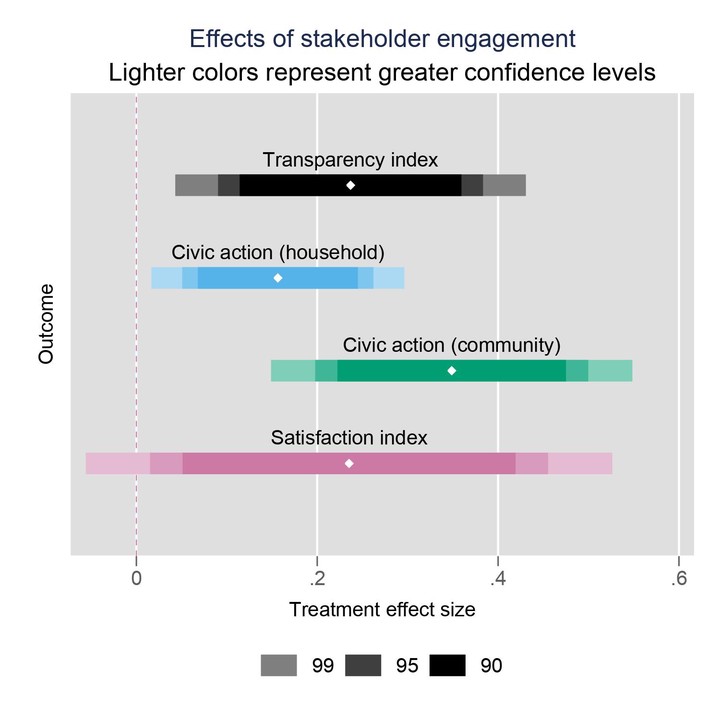Stakeholder engagement increases transparency, satisfaction, and civic action
 Example of estimated treatment effects
Example of estimated treatment effectsAbstract
This study evaluates the effectiveness of a Stakeholder Engagement (SE) intervention in improving outcomes for communities affected by oil and gas extraction in Western Uganda. The study design is a randomized controlled trial where villages are randomly assigned to a treatment group (participating in SE) or a control group (not participating). Data are collected via household surveys at baseline and end line in 107 villages in the Albertine Graben. We find that SE improves transparency, civic activity, and satisfaction with issues that most concern the people under study. While satisfaction has improved, it is too early to ascertain whether these interventions improve long-term outcomes. These results are robust when controlling for spillover effects and other subregional fixed effects.